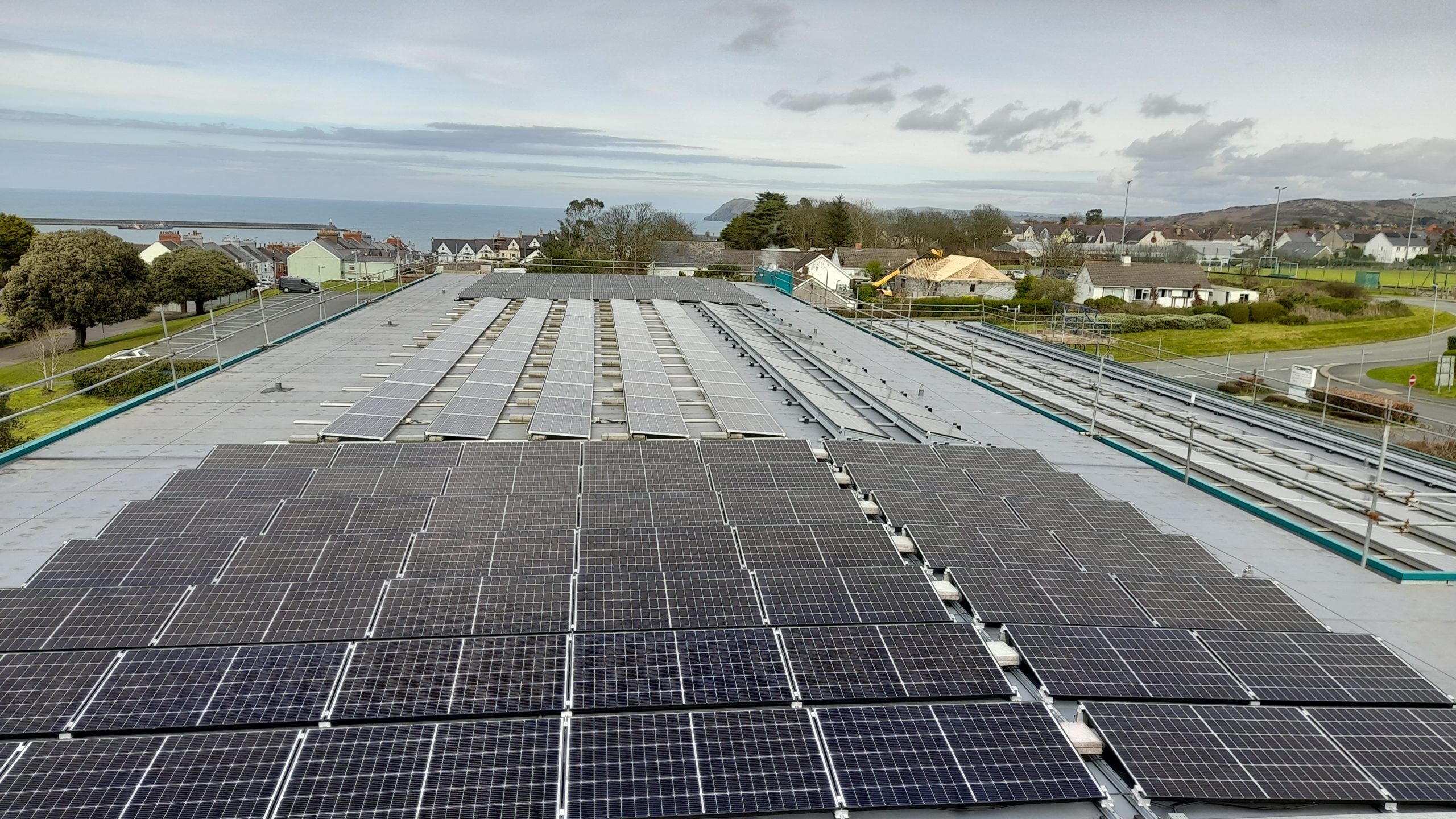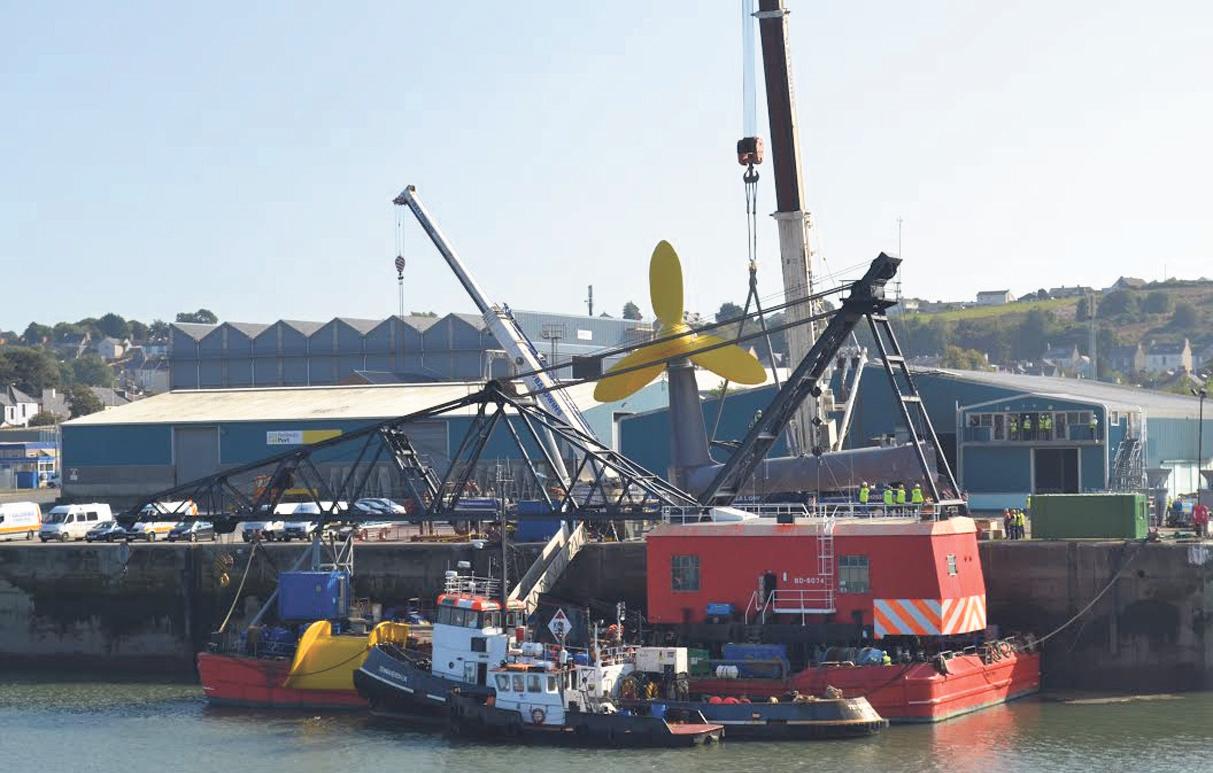Climate
West Wales health board to cut its energy bill by £100,000 per year

HYWEL DDA Health board has launched an innovative, yet simple ‘Switch it off’ campaign to help drastically reduce both its energy usage and costs.
The campaign consists of ‘switching off’ all non-essential equipment when not in use; from computer monitors and laptops to medical equipment, lights, and radiators. This is one of the several initiatives being delivered as part of Hywel Dda’s Decarbonisation Delivery Plan. All of which are aimed at helping to reduce energy costs and CO2 emissions for non-essential equipment by around 20%, which could save around £100,000 per year.
From March 2022 to April 2023, the health board reported spending almost £14 million on energy, producing more than 20 million kg in CO2 emissions. It was evident action needed to be taken to meet its targets to reduce emissions to just 34% by 2030 as set out in the NHS Wales Decarbonisation Strategic Delivery Plan.
Sarah Thorne, Senior One Health Practitioner at Hywel Dda, who has been leading on the implementation of the campaign said: “The ‘Switch-it-off’ campaign is something we expect everyone across the health board and hospital to get involved in. If we all work together, we will see those changes immediately.
“While analysing our energy usage, we discovered that leaving just one TV or PC monitor on standby, instead of switching it off, can waste almost £25 of electricity per year. We have over 6000 screens across the hospital and offices within the health board so if everyone switched off their screen when they weren’t using it, it could help to save a huge amount of money, while also reducing CO2 emissions. It is simple actions like this that will have a massive impact.”
As well as launching the ‘Switch it off’ campaign, the health board has benefitted from Estates Funding Advisory Board (EFAB) funding and Salix funding to support the delivery of a range of decarbonisation projects such as roof mounted Photovoltaics (PV), heat pumps, and solar canopies. It has also made a start in switching its lightbulbs to LED energy saving ones and is planning to install light sensors in communal areas such as toilets and kitchens. Earlier this year, the health board also received funding to install its own solar farm which provides sustainable electricity to power some services, reducing carbon emissions and promoting biodiversity in the area.
Julie James, Minister for Climate Change said: “The ‘Switch it off’ campaign from Hywel Dda is a great example of how organisations can inspire and empower their staff to work together to reduce both carbon emissions, energy usage, costs, and our impact on the environment.
“If everyone could do their bit by ‘switching off’ unnecessarily appliances, it would make a huge difference to the amount of energy we use, which will in turn help us to create a cleaner, greener Wales.”
The Welsh Government has committed to taking action on climate change. Since 2019, the Welsh Government has helped people access greener energy choices. Investing £120million in energy efficiency improvements to social housing through the Optimised Retrofit programme, helping around 148,000 people to live in homes that are cheaper and more efficient to run. The Nest scheme has supported tens of thousands of people to improve the energy efficiency of their home, while in turn reducing energy bills and improving health and wellbeing.
The Welsh Government has also backed flagships schemes such as Ripple Energy’s Wind turbine cooperative, Morriston Hospital’s solar farm and Pobl’s Penderi shared energy initiative, which has seen a community generate and share its own renewable energy. Pilots like these pave the way for similar projects in the future, enabling more people to save money on their energy.
For more advice on how you can reduce your energy use visit climateaction.gov.wales
Climate
Pembrokeshire announced as new location for Atlantic rainforest restoration

THE WILDLIFE Trust of South and West Wales (WTSWW) will begin restoring lost Atlantic rainforest in Pembrokeshire thanks to a long-term partnership with Aviva.
Today, Monday 15th July, WTSWW reveals plans to improve habitats and recreate temperate rainforest at Trellwyn Fach near the Pembrokeshire coast. Rainforests used to cover much of the west coast of Britain though were destroyed over hundreds of years and today, only fragments remain.
Rainforest restoration forms part of a wider programme of nature-based projects to remove carbon from the atmosphere and help nature recover, funded by Aviva’s donation. Communities in Pembrokeshire will be closely involved in the project, with plans for volunteering, educational and employment opportunities, as well as improved access to nature.
The project at Trellwyn Fach is part The Wildlife Trusts’ Atlantic rainforest recovery programme, which is supported by a £38 million donation from Aviva.
The Aviva donation supports the programme to restore temperate rainforests in areas where they used to grow along the damper, western climes of the British Isles. Other rainforest restoration projects have been announced in Devon, North Wales and the Isle of Man.
Sarah Kessell, Chief Executive at WTSWW said told The Pembrokeshire Herald: “We’re delighted this rainforest restoration project at Trellwyn Fach can get started. This site is ideally situated in the Gwaun valley, already connected to Celtic rainforest remnants and giving us the opportunity to buffer and extend this amazing habitat as well as improving access for the local community. These are exciting times!”
Leah Ramoutar, Director of Environmental Sustainability, Aviva, added: “We’re proud to see the Wildlife Trust add another site to the rainforest restoration project, helping Wales become more climate ready. The site in Trellwyn Fach will connect with existing examples of this precious habitat, reestablishing natural corridors to benefit wildlife and add more natural beauty to this stunning part of Wales. It will also provide flood resilience to nearby homes and businesses as well as green jobs and volunteering opportunities to the local community.”
Trellwyn Fach is 146 acres, next to the village of Llanychaer, and just 2 miles from Fishguard. The southern tip of the site connects with the Gwaun Valley woodland, itself a remnant Celtic rainforest. The north end runs onto open moorland on Dinas mountain. From the top of the site there are views of the Preseli Mountains. There is little diversity on the majority of the land with nearly all fields being of semi-improved rye grassland that were grazed by sheep, but there are some wetter areas and some lovely, mature hedgerows of blackthorn, hawthorn, hazel, oak, gorse and holly. Overall, the potential to improve habitats for wildlife is high.
WTSWW’s plans to improve the wildlife value of the new nature reserve through low-intensity grazing of some areas, working with local graziers. The Trust’s conservation team will monitor changes in biodiversity through habitat and species surveys including breeding bird surveys and butterfly transects.
Around two-thirds of the site will become broadleaved woodland through planting and natural regeneration, to buffer the existing woodland and to support the wider connectivity of remnant Celtic rainforest in the landscape. This woodland corridor leads in an arc through the Gwaun Valley, to Pengelli Forest (a WTSWW nature reserve) and the latest plans will contribute greatly to increasing the area of temperate rainforest in north Pembrokeshire. This complements recent work undertaken by Cwm Arian’s ‘Growing Better Connections’ project which engaged with private landowners in the same area to plant up land and/or hedgerows to link woodland habitats in north Pembrokeshire.
A bridleway runs across the bottom part of the site and there is scope to connect walking trails up to Dinas mountain to improve pedestrian access from Llanychaer. There are excellent opportunities to involve local communities in the development and monitoring of this new nature reserve.
Climate
Solar power partnership lighting up community energy fortnight

THE PARTNERSHIP between Pembrokeshire County Council and a community energy charity has recently helped two sites reduce costs and carbon emissions with solar panels.
During community energy fortnight, running until July 14th, the Green Pembrokeshire team is highlighting the second phase of work with Egni Co-op, a community energy organisation that installs rooftop Solar PV systems.
Egni cover the cost of installation and then sell the generated electricity to the building owner at a discount, with all profits generated used to fund further projects and environmental educational programmes.
In early 2023 Egni was awarded the contract to install systems on around 20 schools and leisure centres across the County and will manage and maintain the systems for 20 years.
It’s estimated that the solar panels will prevent the emission of approximately 200 tonnes of carbon dioxide per year and should save the schools and leisure centres £180,000 per year in energy costs.
This second phase has seen Fishguard Leisure Centre add a 170kW system to its existing 50kW provision and the energy will be sold to the building at a reduced rate. With the combined systems generating around 187,000 kWh a year, nearly 40 tonnes of CO2 will be offset.
During the first part of the month more than half the Centre’s electrical energy has been provided by the solar panels and daytime dependence on the grid is almost zero during the summer.
Also boosting its solar panel system is Tavernspite School where a 27kW system has been installed with discounted electricity reducing dependence on the electrical grid and offsetting approximately five tonnes of carbon emissions per year.
The school is one of many also benefiting from Egni’s education programme, alongside Sustainable Schools Pembrokeshire.
Egni Workshops challenge pupils to make the connection between energy and climate change, and school to reduce their energy through campaigning for behaviour change.
Cabinet Member for Place, the Region and Climate Change Cllr Paul Miller said: “These two sites are the latest to benefit from this innovative scheme that is helping the Council and its buildings make carbon savings, as well as saving money, without capital costs.”
Jenny Carlisle, Egni Development Manager, said: “We are delighted to be working with the Council and young people in Pembrokeshire schools. It’s a great example of co-operation. We all need to work together to tackle climate change and keep money in the Welsh economy.”
Climate
Marine Energy Boosts Welsh economy by £30m, Pembrokeshire leads

IN the 2023/24 financial year, Wales’ marine renewable energy sector delivered a substantial £29.9 million to the Welsh economy, as revealed in the latest State of the Sector Report by Marine Energy Wales. This brings the total cumulative spending and investment in the sector to an impressive £292.9 million.
Despite a notable reduction from the previous year’s £103.4 million, this year’s figure remains the second highest annual spend recorded to date. The decline is attributed to the conclusion of European grant funding and the completion of significant infrastructure projects, such as the Morlais development on Anglesey, which inflated last year’s expenditures.
Jeremy Miles, Cabinet Secretary for Economy, Energy and Welsh Language, expressed optimism about the sector’s future: “Wales is well placed to be at the forefront of marine energy technologies. Maximising this opportunity is an important step towards our path to net zero, attracting investment and creating highly skilled and well-paid jobs, particularly in coastal communities.”

The report highlights the considerable contribution of the tidal stream sector, which has injected £116.1 million into the Welsh economy since 2019, largely due to the Morlais infrastructure and the efforts of tidal kite developer Minesto.
Anglesey and Pembrokeshire are at the forefront of this growth, with Anglesey leading with £103.8 million in investments to date, closely followed by Pembrokeshire at £97 million. Swansea is also emerging as a key player, with £39.2 million invested in marine energy development.
The sector currently sustains 429 full-time jobs across Wales, with Pembrokeshire employing the highest number of people in the sector at 260 FTEs. This is due to the county’s established supply chain, which includes fabricators, engineers, and environmental consultants. Both Swansea and Anglesey also contribute significantly to employment in this sector.
Tam Bardell, Chair of Marine Energy Wales, underscored the importance of maintaining momentum: “We have just over a decade to meet the Welsh Government’s target of 100% renewable energy by 2035. While generating around 59% from renewable sources, we still have a long way to go. This report is not just a reflection of our achievements but a call to action.”
The future of the sector looks promising, particularly for tidal stream and floating offshore wind (FLOW), with a projected £486 million spend over the next five years in Wales. Continued support from governmental policies and increased private sector investment are essential for overcoming current barriers and ensuring Wales’ progression as a global leader in marine renewable energy generation.
As the sector grows, improving gender balance and diversifying roles remain positive steps forward, ensuring the industry’s sustainable development and its pivotal role in Wales’ economic and environmental future.
-

 Education5 days ago
Education5 days agoMilford Tesco worker achieves Oxford dream and lands top legal job
-

 Crime4 days ago
Crime4 days agoHaverfordwest man admits having nearly 1000 child and animal images
-

 Crime4 days ago
Crime4 days agoYouth set to appear in court over serious sexual offences
-

 Crime4 days ago
Crime4 days agoPolice investigating after man injured during altercation in cemetery
-

 Education4 days ago
Education4 days agoPupils delight in ice cream treat from Pembrokeshire’s number one van
-

 Crime4 days ago
Crime4 days agoTown centre ‘stinking of skunk’ as police strip cannabis farm
-

 Crime3 days ago
Crime3 days agoFag-butt police court summonses spark debate in Pembrokeshire
-

 News6 days ago
News6 days agoProposal to give firefighters a council tax discount to go to Cabinet































